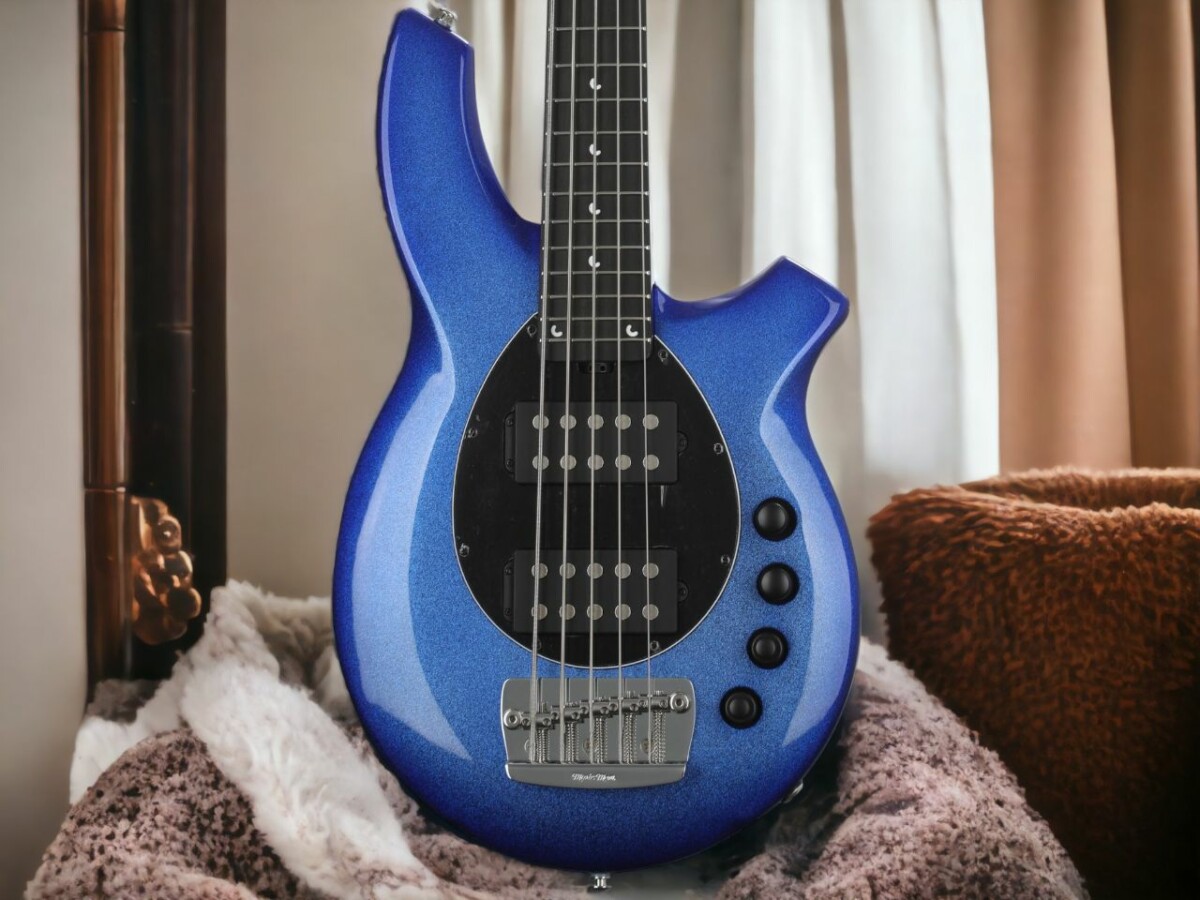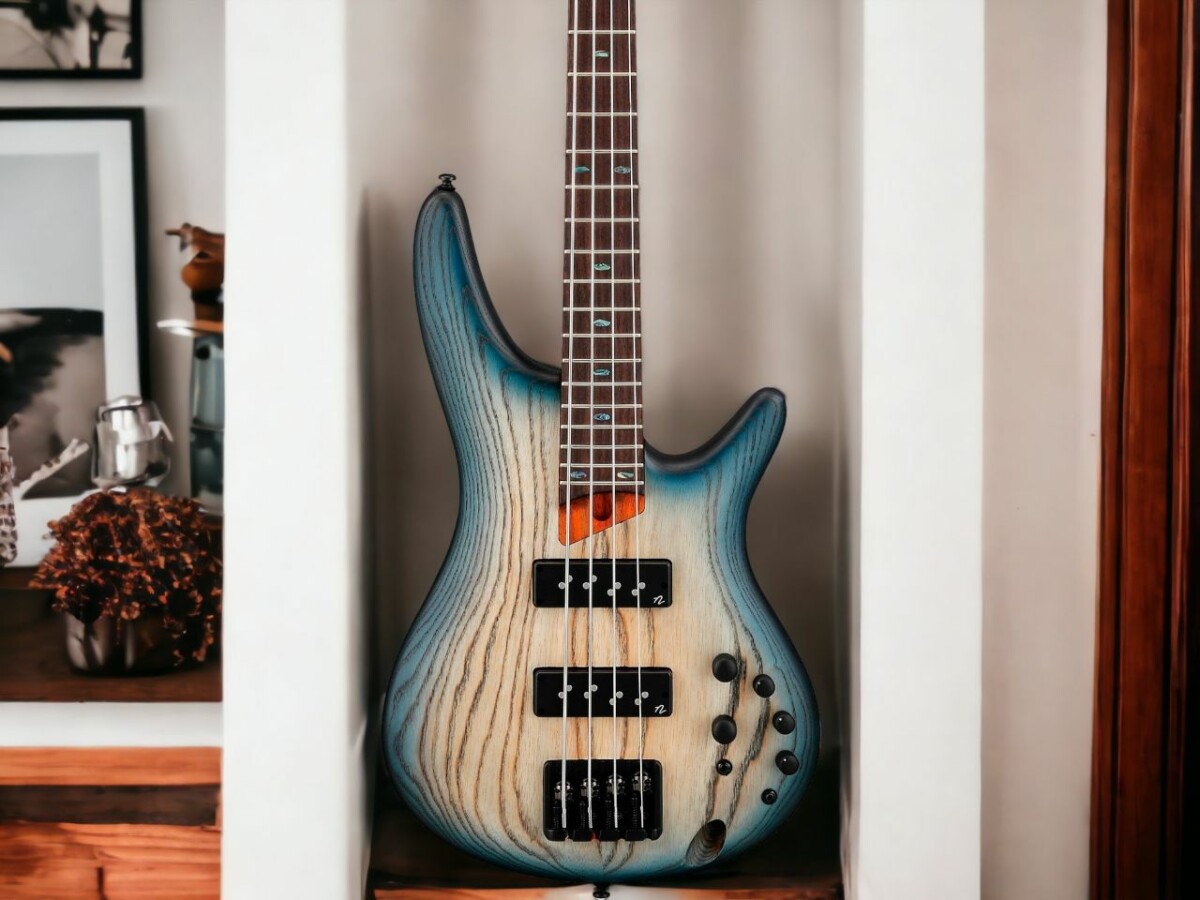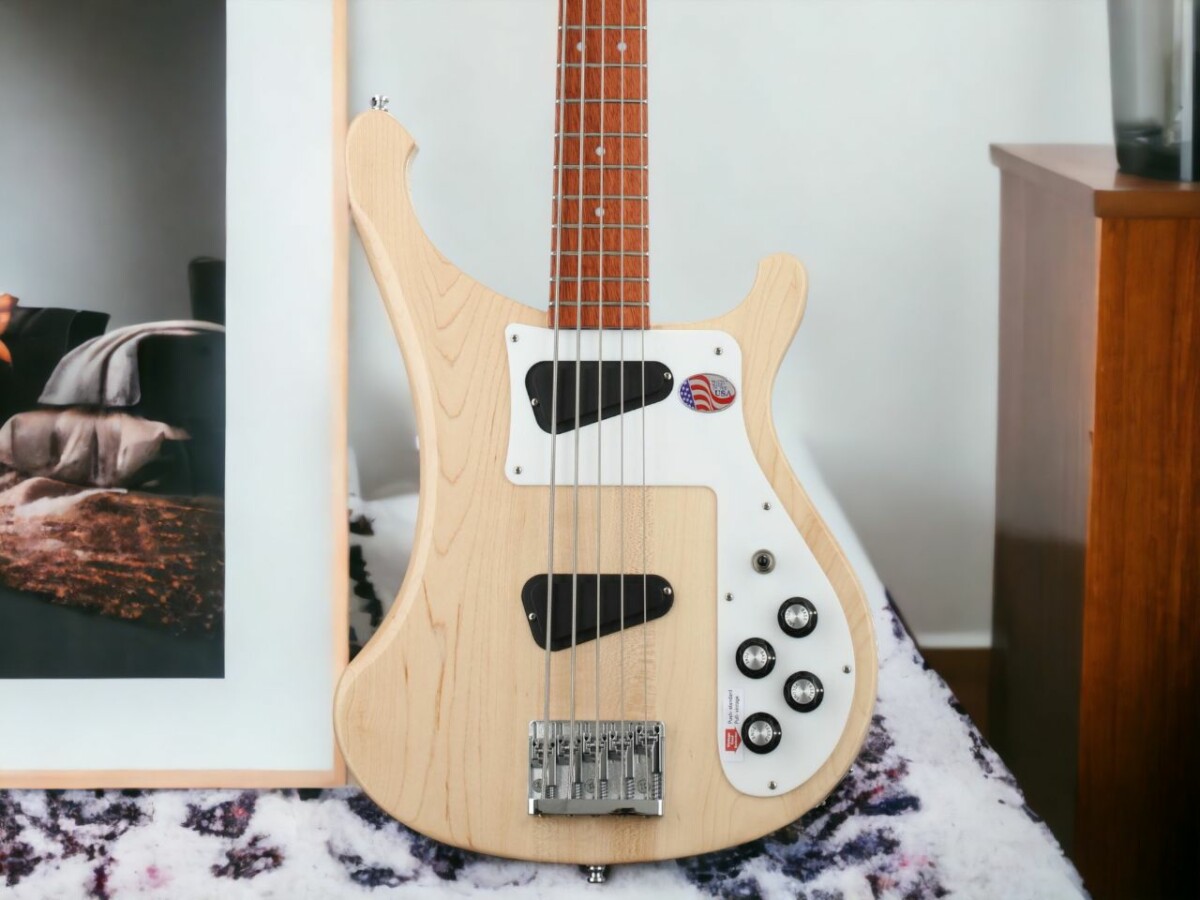You’re right in the zone, your bass guitar vibrating to the rhythm of your touch. Ever thought about how long these strings can keep up the beat?
It’s not about when they’ll give up and snap, but rather when they start to lose their distinct sound. The journey from the bright, lively sound of new strings to the laid-back, mellow vibe of older ones is quite a ride, and your own unique style of play and personal preferences can greatly influence how long they ride out.
So, whether you’re into the deep, smooth sounds of flatwound or the energetic buzz of roundwound, let’s delve into the intriguing realm of bass guitar string durability.
The Lifespan of Bass Guitar Strings
Your bass guitar strings could last you from a couple of weeks to several months, maybe even more. It really boils down to how frequently you’re jamming, how you play, and of course, how well you look after those strings. So, make sure you show them some love to keep them grooving for longer!
When it comes to figuring out how long your bass guitar strings are gonna last, there’s more to it than you might think. It’s not just about the strings themselves, but also about your own playing habits, preferences, and even the maintenance routine.
First off, your playing style is key. If you’re the kind of player who’s always jamming energetically, your strings are gonna wear out faster. On the other hand, if you’re more chill and laid back, you can expect your strings to last longer.
The type of strings you’re using also plays a huge role. Roundwound strings are kinda like the fast and furious of the string world – they live fast, die young. Whereas, flatwounds are more like the tortoise in the race – slow and steady, they tend to last longer. Speaking of strings, have you ever wondered how often you should change bass guitar strings?
Your personal taste in music also comes into play. If you’re all about those bright, crisp tones, you might find yourself changing strings more often.
Brand matters too. Some brands are just built to last, while others mightn’t hold up as well.
And let’s not forget about maintenance. It’s like taking care of a pet. You gotta clean ’em up after each jam session, use a proper string cleaner, and store your bass guitar properly to keep the strings in good shape.
In the end, it’s your attention to these details that’ll decide how long your bass guitar strings are gonna stick around. By the way, if you’ve been jamming for a while and collecting various bass guitars, you might find yourself asking, how many bass guitars do you really need? So, keep these points in mind and play on!
Factors Influencing the Frequency of String Replacement

So, about your style:
- If you’re the type who likes to shred and really get into it, you’re probably gonna find yourself wearing out your strings quicker, thanks to all that extra friction.
- On the flip side, if you’re more of a chill player with a lighter touch, your strings are likely gonna stick around for a bit longer.
And then there’s the type of strings you’re using:
- Now, roundwound strings might give you that bright, rich tone you’re after, but they tend to lose their ‘zing’ a bit quicker.
- Flatwound strings, on the other hand, mightn’t have quite the same brightness, but they’re usually in it for the long haul.
But hey, these aren’t set-in-stone rules. Your personal taste is also a heavy hitter here. There are bassists out there who absolutely dig the sound of old, ‘dead’ strings, while others are all about that bright, fresh-string tone. And while we’re on the topic of customization and personal touch, have you ever thought about painting your bass guitar? It can be a fun way to make your instrument truly your own.
Examining the Role of Tuning Stability in String Longevity
Alright, let’s dive into how tuning stability plays a role in the lifespan of your bass guitar strings. It’s a game changer, really. If you take good care of your strings, including keeping them in tune, you’re giving them a longer lease of life. Tuning isn’t just about nailing that perfect sound, it’s also about maintaining the tension that keeps your strings in good shape.
If you’re always messing around with the tuning, detuning and retuning, you’re just stressing out your strings. It’s like they’re on a never-ending rollercoaster ride, and it’s not doing them any good. Over time, they’re gonna give up on you sooner than you’d like.
And hey, the way you play your bass matters too. If you’re the kind who loves to go hard and heavy, you might find yourself changing strings more often. But if you’re more into the gentle, soft strumming, your strings might stick around for a bit longer.
Comparing Roundwound and Flatwound String Lifespan and Tone
If you’re on the hunt for that bright, zingy sound, roundwound strings could be your secret weapon. But, fair warning, their sparkle can fade pretty quickly. Flatwound strings, on the other hand, rock a smoother tone and they’re pretty tough cookies – they often outlive their roundwound cousins.
Let’s break down the pros and cons of roundwound and flatwound strings, shall we?
Roundwound
- Highs: They’re bright and resonant – perfect for those slap and pop styles you love.
- Lows: They can be a bit noisy on the fingers and they don’t exactly have the longest shelf life.
Flatwound
- Highs: They’ve got a smoother feel and they definitely clock in some serious lifespan.
- Lows: They might lack a bit in tonal definition and sustain.
Deciding between roundwound and flatwound strings is pretty much a balancing act between the tone you’re going for and how long you need your strings to last. Roundwounds serve up a lively, vibrant tone but they can wear out pretty fast. Flatwounds mightn’t be as bright, but they make up for it with their longevity. At the end of the day, it’s all about your personal vibe and what sound you want to put out there.
The Impact of Settle-in Time on Bass Guitar String Performance
Settle-in time is key for your bass guitar strings – it’s like breaking in a new pair of shoes. It affects everything, from how well your guitar stays in tune to the sound quality you get out of it. When you string up a new set, those babies need some time to get used to the tension and stretch out a bit before they can really shine. That’s why it’s super important to take care of them. Regular tune-ups, a good cleaning, and some TLC can make your strings last longer and sound better.
Let’s talk about how the age of your strings can affect the sound you get. As your strings get used to the guitar, the sound they produce gets more mature – think of it as a good wine aging in a barrel. The tone gets richer and fuller. But, like anything that gets old, there’s a downside. Dirt and grime can build up over time and muffle that awesome sound. So, it’s a bit of a toss-up. Some peeps are all about that aged sound, while others are into the crisp, bright sound of new strings.
In the end, understanding how settle-in time affects your strings can help you squeeze the best sound out of your bass. So, whether you’re into the rich sound of vintage strings or the brightness of a fresh set, knowing how to play the waiting game can make all the difference.



